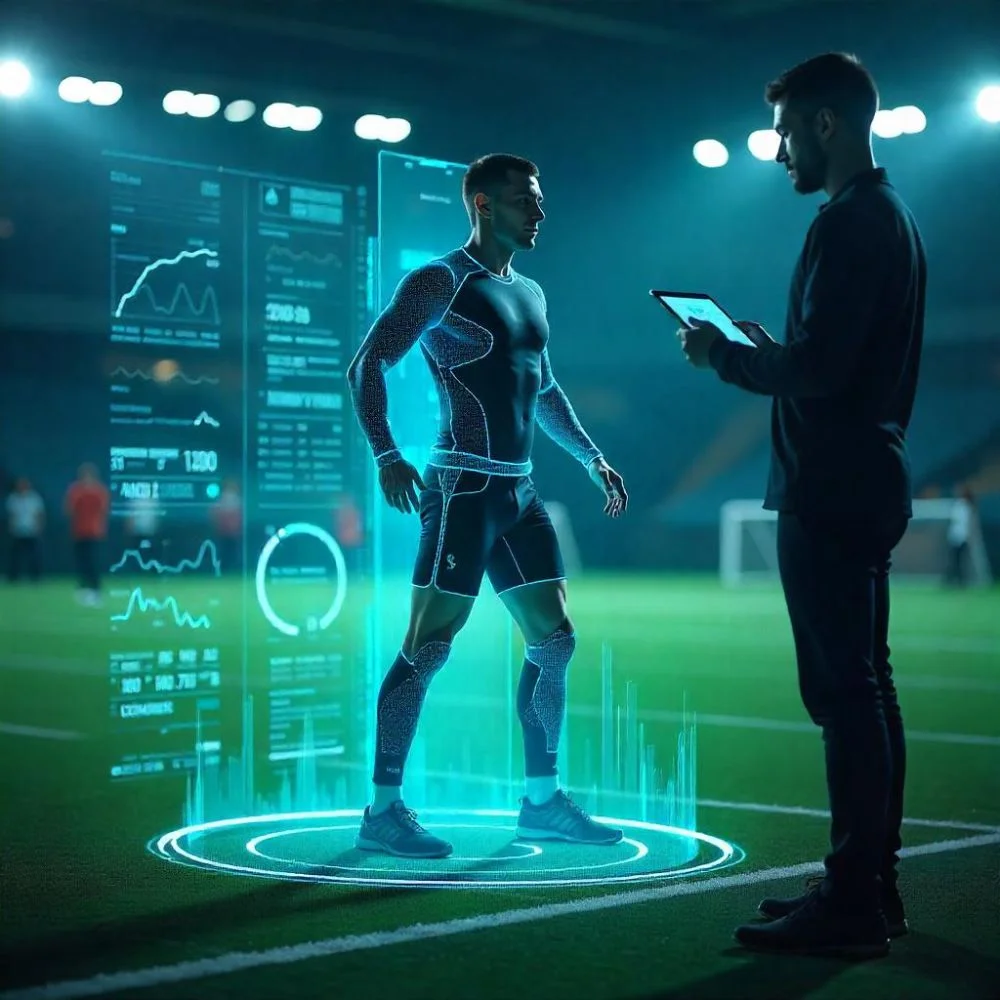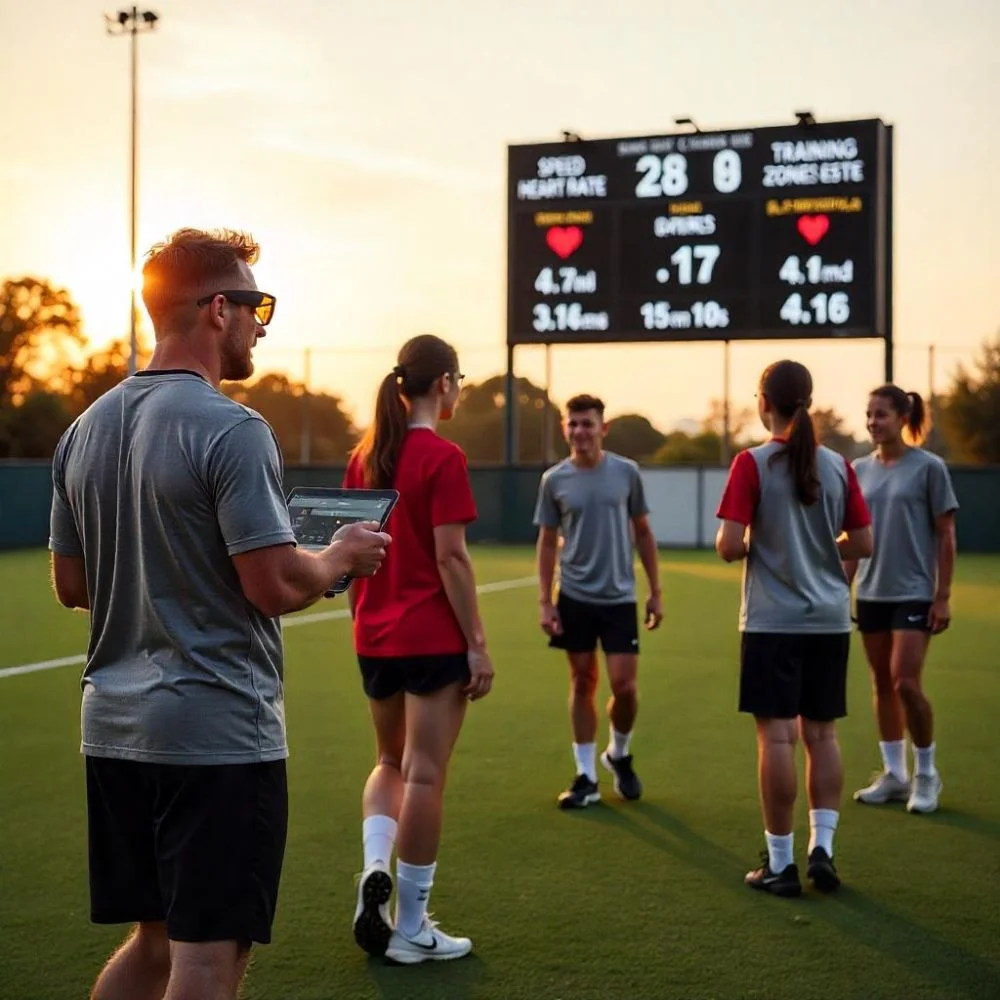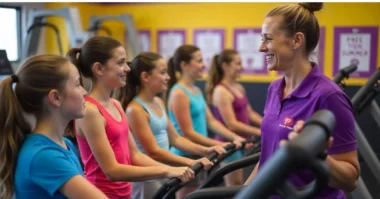Table of Contents
- Artificial Intelligence Supports Smarter Coaching
- Smart Technology Helps Athletes Perform Better
- Real-Time Data Tracking Makes a Big Difference
- Video Analysis Helps Improve Game Strategy
- Smart Stadiums Upgrade the Fan Experience
- Total Sport Tech Reduces Injuries and Aids Recovery
- Young and Amateur Athletes Benefit Too
- Ethics and Data Privacy in Sports Technology
- Total Sport Tech Powers a New Era in Sports
Artificial Intelligence Supports Smarter Coaching
Artificial intelligence in sports helps coaches and analysts make better decisions. Total Sport Tech is changing how athletes train, coaches plan, and fans enjoy the game. Whether you’re a professional player or a casual fan, Total Sport Tech is making sports more efficient, more interactive, and more exciting than ever. As technology advances, it continues to push sports into a new era of performance and engagement. AI reads huge amounts of data faster than humans and gives useful insights. For example, it can:
- Predict injuries by studying movement and stress on joints
- Suggest personalized workout plans
- Analyze player and team performance
- Break down game footage to highlight patterns
Smart Technology Helps Athletes Perform Better
Smart sports technology is now a key part of athletic performance across all levels. It provides athletes with real-time feedback that allows them to understand their bodies, optimize their training, and make safer decisions during both practice and competition. Tools such as GPS trackers, heart rate monitors, accelerometers, and motion sensors are widely used to collect accurate and instant performance data.
For instance, a GPS tracker can measure how fast an athlete runs and how much distance they cover, while a heart monitor can show if the athlete is overworking. A motion sensor can even detect an athlete’s joint angles to assess form and technique.

As a result, athletes can:
- Train more effectively: Athletes can now follow data-driven routines instead of a general workout plan. For example, if the system detects low endurance, it can suggest more cardio. If power is lacking, it can focus on strength-building workouts.
- Track fitness levels over time: Athletes can view charts and reports showing how their speed, strength have improved. This long-term tracking helps set goals and maintain motivation.
- Avoid overtraining and injuries: Fatigue tracking lets athletes know when to rest. If a player’s heart rate stays high longer than usual or if motion sensors detect decreased movement efficiency, it’s a red flag for possible overtraining or injury.
- Improve technique and form: Movement analysis shows if a sprinter is favoring one leg or if a tennis player’s swing has changed. Small improvements here can increase performance and reduce injury risk.
- Adapt to daily body condition: Smart tech helps athletes train based on how their body feels that day, not just based on the schedule. If sleep or recovery data is poor, the athlete can lower the intensity for that session.
- Receive personalized coaching feedback: The data collected from these devices can be shared with coaches, who can give more accurate and specific instructions tailored to that athlete’s needs.
- Recover smarter and faster: During recovery, smart tech tracks how muscles respond to therapy or light training. It ensures athletes don’t rush back before they are ready.
Real-Time Data Tracking Makes a Big Difference
With real-time sports data, teams and fans get updates instantly. Smart sensors and GPS tools collect details during matches. They track:
- Speed
- Distance covered
- Ball possession
- Pass accuracy
- Shot placement and timing
As a result, coaches can adjust strategies in real time. Meanwhile, fans enjoy a more informed viewing experience through apps and screens that show live stats. Thus, real-time tracking adds a new layer of engagement for everyone involved in the game.
Video Analysis Helps Improve Game Strategy
Video analysis in sports has become a powerful tool for both practice and competition. Today, teams widely use high-speed cameras and advanced software to break down every play frame by frame. This technology allows coaches to correct player form, identify movement issues, and study the behavior of opponents in great detail.
Furthermore, players can watch their own recorded performances to learn from mistakes, build stronger habits, and refine their skills. By visually understanding what went right or wrong, athletes become more self-aware and confident in their execution. As a result, video analysis supports both individual development and overall team improvement.
Smart Stadiums Upgrade the Fan Experience
Modern sports arenas are becoming smart stadiums thanks to Total Sport Tech. These stadiums use technology to give fans a smooth, safe, and fun experience. Key features include:
- Touchless ticketing for faster entry
- In-seat ordering of food and drinks via apps
- High-speed Wi-Fi access throughout the venue
- Augmented reality (AR) overlays that enhance viewing
Consequently, these upgrades turn every game into an interactive experience. Fans not only watch the game, but also participate digitally. Because of these features, fans feel more connected and enjoy their time at the stadium more than ever.
Total Sport Tech Reduces Injuries and Aids Recovery
Injuries are part of sports, but Total Sport Tech helps reduce their number and improve recovery time. Using tools like recovery wearables and motion sensors, sports teams can:
- Monitor stress levels on joints and muscles
- Set training limits based on real-time fatigue data
- Guide athletes through physical therapy sessions
- Track progress during recovery with app-based reports
Moreover, these technologies help detect risks like muscle fatigue or dehydration before they lead to injury. Faster recovery means players can return to action sooner and in better shape. In contrast to old methods, today’s recovery is smarter and safer.
Young and Amateur Athletes Benefit Too

Youth sports technology makes smart training possible for all levels. In recent years, affordable tools and simple apps have become widely available. These tools help:
- Track goals and results over time
- Improve training with video feedback
- Learn proper movement and form
- Share data with coaches and family members
Because of early access, young athletes learn safe, effective techniques. In the long run, this builds strong foundations for athletic growth. Whether in school leagues or local teams, young players now train like pros.
Ethics and Data Privacy in Sports Technology
As Total Sport Tech becomes more common, data privacy in sports is a serious concern. These smart tools collect personal and medical information about athletes. Important questions include:
- Who owns the collected data?
- How is it stored and protected?
- Can teams sell or share this data without consent?
- Are there risks to athlete health information being leaked?
At the same time, athletes should know how their data is being used and ask for clear policies. Without proper safeguards, tech can harm the sport people it’s meant to help.
Total Sport Tech Powers a New Era in Sports
From wearable fitness devices and real-time tracking to video analysis and AI-driven coaching, this technology touches every part of the game. In conclusion, it helps reduce injuries, builds strong habits for young athletes, and turns stadiums into tech-powered experiences. As long as data is handled responsibly, the future of sports looks smarter, safer, and more enjoyable for all.








